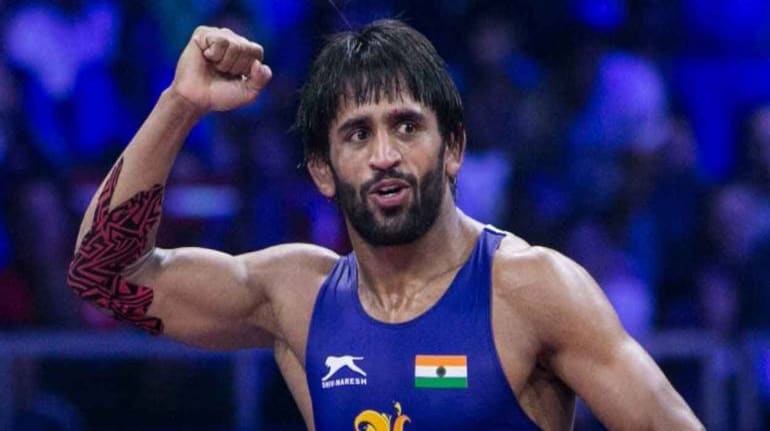



All of India is rightfully celebrating the success of our athletes at the Asian Games. This is the first time in the history of the Asiad that India has a triple-digit medal tally, including absolutely commanding performances in hockey and some track and field events. Yet, the humiliation of wrestler Bajrang Punia in the bronze play-off match against Kaiki Yamaguchi of Japan should be seen as a cautionary tale at several levels.
Right from the beginning of the Asiad, Punia had looked like a shadow of his former self—slower, less energetic and less strong than we had come to expect of the man nicknamed “The Tank”. He lost to Yamaguchi by an ignominious 10-0. This was the first time in seven years that Punia has not won a single medal in an international tournament. A shadow now hangs over his future.
The reasons for this poor show are obvious. Along with some other leading Indian wrestlers, he had spent the first six months of the year agitating on the streets of Delhi. Their principal demand was the removal of Brij Bhushan Sharan Singh from the presidency of the Indian Wrestling Federation (IWF) on charges of sexual harassment of women wrestlers.
The long protest obviously affected Punia’s diet and training regimen. According to one report, the wrestler, who competes in the 65-kg freestyle category, had bloated up to 75 kg. He then put himself into a superhumanly intense training routine and managed to lose the flab, but these desperate workout programs may have exhausted him both physically and mentally.
Meanwhile, the Indian Olympic Association ad hoc panel granted Punia entry into the team without any trials. As a result, it was at the Asiad, Punia was playing his first matches—either domestic or international—in 13 months. This was clearly asking for trouble. Even the Virat Kohlis and Lionel Messis of the world have to go through rigorous tests and warm-up games before international contests to prove their physical fitness and playing form.
Among the other protestors who were all medal prospects at the Asiad, Vinesh Phogat, who had, like Punia, been exempted from trials, dropped out due to injury. Two others, Sakshi Malik and Sangeeta Phogat, refused to contest in the trials and were automatically dropped from the team. It is quite possible that the grueling street agitation had affected their preparedness.
In the trials, young Vishal Kaliraman won all his five matches in Punia’a category, but he was only kept as a standby for Punia for the Asiad. Many wrestlers, their families and supporters saw this as unfair and there has been another round of protests.
Truth be told, the IOA panel made a complete mess of matters. All through the agitation, the Union sports ministry seemed confused and paralyzed. It watched silently even as media and opposition politicians descended on Jantar Mantar in Delhi, where the protestors sat. This fuelled their determination even more and created public sympathy for their cause. Yet, even a mid-level corporate executive would have known how to handle the issue.
When sexual harassment charges are made, the company has to move rapidly, ask the accused to step aside from his responsibilities while an impartial committee investigates. If found innocent, he can return; if found guilty, he has to face consequences. The Supreme Court has laid down well-defined processes, referred to usually as the Visakha guidelines, and it is mandatory in such cases for all Indian entities to follow these rules.
But the government acted very differently. The reasons seem to have been political. Brij Bhushan Singh is a six-time member of Parliament from Uttar Pradesh—five times from the BJP—and obviously a typical Hindi belt strongman. The central leadership may have felt chary of upsetting him—a large swing of voters away from the BJP in the country’s most populous state could seriously hurt the party’s prospects.
On the other hand, the protesting wrestlers were all Haryanvi Jats. The BJP lost its absolute majority in Haryana in the last state assembly elections and now runs a coalition government. Jat voters, for many of whom these wrestlers are a source of great pride, are critical to the BJP in the next elections, both state and centre.
Caught in this dilemma, the government had to finally bring in Home Minister Amit Shah to talk to the wrestlers at his residence in the middle of the night. Apparently reassured by him, they withdrew their protest. Police cases were lodged against Singh and he was barred from standing in the WFI election.
One day the courts will decide whether Singh is guilty, or whether the protests were a power play to grab control of Indian wrestling by a small but high-profile coterie—most of the leaders of the agitation are related to one another through blood and marriage. But due to the government’s long inertia, Indian wresting has suffered. Why did the Home Minister of a country have to get involved to solve this sort of a problem, which could have been nipped in the bud?
It remains to be seen whether the BJP’s electoral fortunes will be affected in any way in Uttar Pradesh and Haryana by the panel’s bungling of the fracas. But certainly, India could have won a few more medals at the Asian Games, whether through the veterans or the young Kaliraman. India’s great show at Hangzhou will come with that tinge of regret.
Discover the latest Business News, Sensex, and Nifty updates. Obtain Personal Finance insights, tax queries, and expert opinions on Moneycontrol or download the Moneycontrol App to stay updated!
Find the best of Al News in one place, specially curated for you every weekend.
Stay on top of the latest tech trends and biggest startup news.